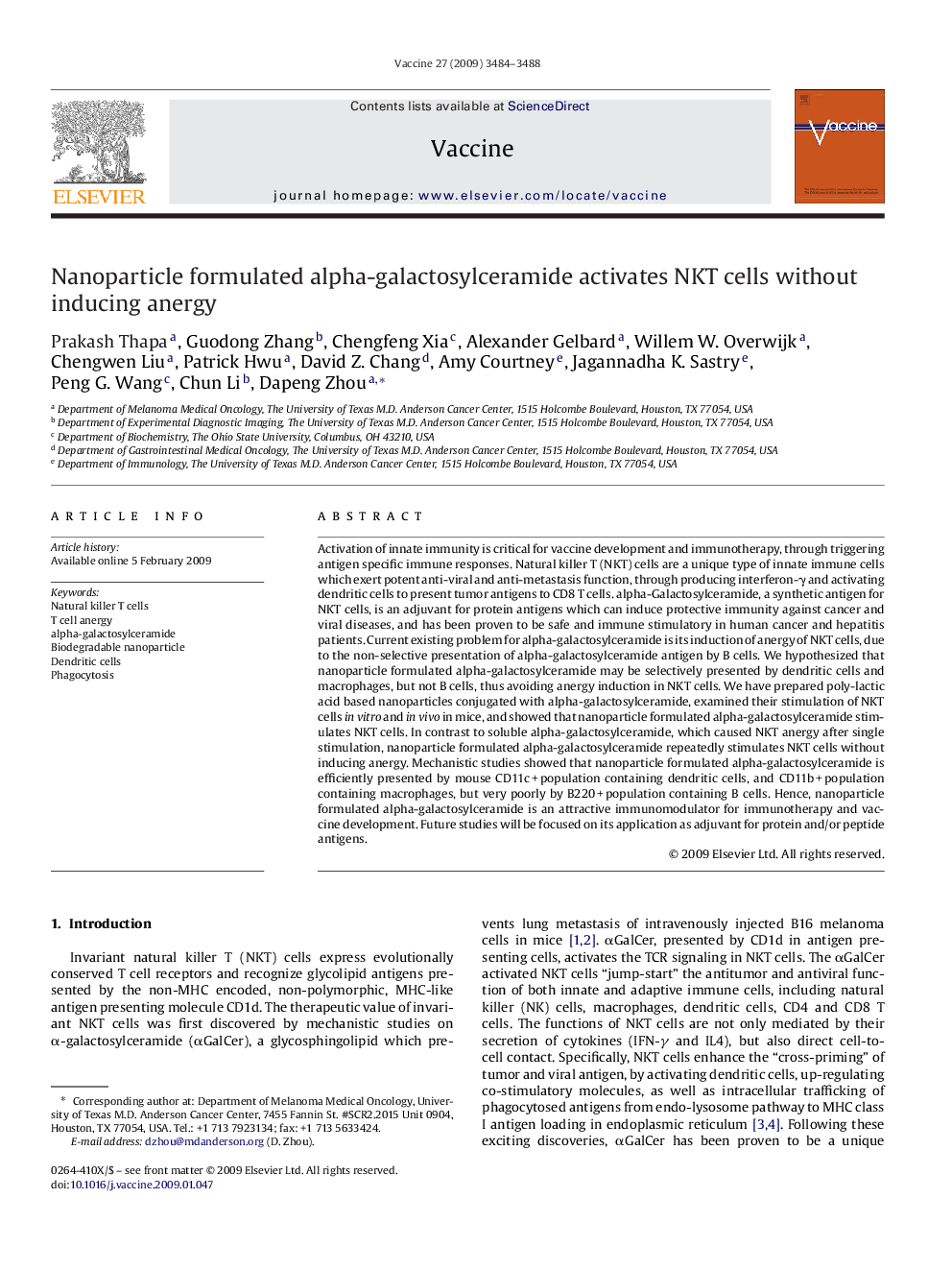| Article ID | Journal | Published Year | Pages | File Type |
|---|---|---|---|---|
| 2405551 | Vaccine | 2009 | 5 Pages |
Activation of innate immunity is critical for vaccine development and immunotherapy, through triggering antigen specific immune responses. Natural killer T (NKT) cells are a unique type of innate immune cells which exert potent anti-viral and anti-metastasis function, through producing interferon-γ and activating dendritic cells to present tumor antigens to CD8 T cells. alpha-Galactosylceramide, a synthetic antigen for NKT cells, is an adjuvant for protein antigens which can induce protective immunity against cancer and viral diseases, and has been proven to be safe and immune stimulatory in human cancer and hepatitis patients. Current existing problem for alpha-galactosylceramide is its induction of anergy of NKT cells, due to the non-selective presentation of alpha-galactosylceramide antigen by B cells. We hypothesized that nanoparticle formulated alpha-galactosylceramide may be selectively presented by dendritic cells and macrophages, but not B cells, thus avoiding anergy induction in NKT cells. We have prepared poly-lactic acid based nanoparticles conjugated with alpha-galactosylceramide, examined their stimulation of NKT cells in vitro and in vivo in mice, and showed that nanoparticle formulated alpha-galactosylceramide stimulates NKT cells. In contrast to soluble alpha-galactosylceramide, which caused NKT anergy after single stimulation, nanoparticle formulated alpha-galactosylceramide repeatedly stimulates NKT cells without inducing anergy. Mechanistic studies showed that nanoparticle formulated alpha-galactosylceramide is efficiently presented by mouse CD11c + population containing dendritic cells, and CD11b + population containing macrophages, but very poorly by B220 + population containing B cells. Hence, nanoparticle formulated alpha-galactosylceramide is an attractive immunomodulator for immunotherapy and vaccine development. Future studies will be focused on its application as adjuvant for protein and/or peptide antigens.
